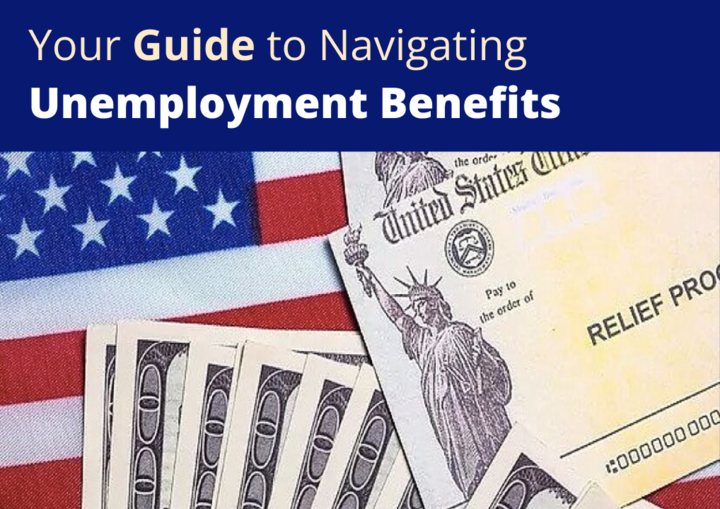Payday loans are short-term, high-interest loans designed to provide immediate cash to borrowers who find themselves in urgent financial need. Typically, these loans are intended to cover unexpected expenses, such as medical bills, car repairs, or other emergencies that arise between paychecks. The appeal of payday loans lies in their accessibility; they often require minimal documentation and can be obtained quickly, sometimes within a matter of hours.
This immediacy makes them attractive to individuals who may not have access to traditional banking services or who have poor credit histories. However, the convenience of payday loans comes with significant drawbacks. The interest rates on these loans can be exorbitantly high, often exceeding 400% APR, which can lead to a cycle of debt that is difficult to escape.
Borrowers may find themselves taking out additional loans to pay off existing ones, creating a financial trap that can have long-lasting consequences. Understanding the nature of payday loans is crucial for anyone considering this option, as it is essential to weigh the benefits against the potential risks and long-term implications on one’s financial health.
Key Takeaways
- Payday loans are short-term, high-interest loans typically used by individuals who need quick access to cash.
- Payday loans work by allowing borrowers to write a post-dated check or provide electronic access to their bank account for the amount borrowed plus fees, to be repaid on their next payday.
- The risks of payday loans include high interest rates, potential for debt cycle, and negative impact on credit score.
- Alternatives to payday loans include borrowing from friends or family, seeking assistance from community organizations, or exploring low-interest personal loans.
- Regulations and laws surrounding payday loans vary by state, with some states imposing strict limits on interest rates and fees. It’s important to be aware of the laws in your state.
How Payday Loans Work
The Loan Application Process
The lender will then assess the borrower’s income and may require proof of employment or bank statements to ensure that the borrower has the means to repay the loan.
Repayment Terms and Conditions
Once approved, the borrower signs a loan agreement that outlines the terms, including the repayment date, which is usually aligned with the borrower’s next payday. Repayment of payday loans is typically due within two to four weeks, depending on the lender’s policies and the borrower’s pay schedule. At this point, the borrower must repay the principal amount along with any accrued interest and fees.
The Risks of Loan Rollover
If the borrower is unable to repay the loan by the due date, they may have the option to roll over the loan, which involves taking out a new loan to cover the old one. While this may provide temporary relief, it often leads to additional fees and interest charges, exacerbating the financial burden on the borrower.
The Risks of Payday Loans
One of the most significant risks associated with payday loans is their high cost. The annual percentage rates (APRs) can be staggering, often leading borrowers to pay back two or three times the amount they initially borrowed. This financial strain can quickly escalate, particularly for individuals living paycheck to paycheck who may not have the means to absorb such costs.
The short repayment period also adds pressure; many borrowers find themselves in a position where they cannot repay the loan in full by the due date, leading them to take out additional loans. Moreover, payday loans can have detrimental effects on a borrower’s overall financial stability. The cycle of borrowing and rolling over loans can lead to chronic debt, making it increasingly difficult for individuals to manage their finances effectively.
This situation can result in missed payments on other obligations, such as rent or utilities, further compounding financial stress. Additionally, many borrowers report feelings of shame and anxiety associated with their inability to escape this cycle, which can have negative implications for mental health and overall well-being.
Alternatives to Payday Loans
Given the risks associated with payday loans, it is essential for individuals in need of quick cash to explore alternative options that may offer more favorable terms. One viable alternative is a personal loan from a credit union or bank. These institutions often provide lower interest rates and more flexible repayment terms compared to payday lenders.
Credit unions, in particular, may offer small-dollar loans specifically designed for members facing financial emergencies. Another option is seeking assistance from nonprofit organizations that provide financial aid or emergency funds. Many community organizations and charities offer programs aimed at helping individuals in crisis situations without the high costs associated with payday loans.
Additionally, individuals may consider negotiating payment plans with creditors or seeking temporary assistance from family and friends as a way to bridge financial gaps without incurring debt.
Regulations and Laws Surrounding Payday Loans
The regulation of payday loans varies significantly across different states and countries, reflecting a patchwork of laws designed to protect consumers from predatory lending practices. In some jurisdictions, there are strict limits on interest rates and fees that lenders can charge, while others have few regulations in place, allowing lenders to impose exorbitant costs on borrowers. For instance, some states have enacted laws that cap interest rates at a certain percentage or limit the number of times a borrower can roll over a loan.
In recent years, there has been increased scrutiny of payday lending practices at both state and federal levels. Advocacy groups have pushed for reforms aimed at curbing predatory lending and protecting vulnerable consumers from falling into debt traps.
The Consumer Financial Protection Bureau (CFPB) has also implemented regulations requiring lenders to assess a borrower’s ability to repay before extending credit.
These regulations aim to promote responsible lending practices and ensure that borrowers are not set up for failure from the outset.
Impact of Payday Loans on Credit Score
The Consequences of Defaulting on a Payday Loan
A single missed payment can result in a significant drop in credit score, making it even more challenging for individuals to secure future loans or credit. This can create a vicious cycle where borrowers are forced to rely on payday loans, further exacerbating their financial difficulties.
The Pattern of Financial Instability
The reliance on payday loans can create a pattern of financial behavior that negatively impacts creditworthiness. Borrowers who frequently turn to payday loans may be perceived as high-risk by lenders, which can hinder their ability to obtain more favorable financing options in the future. This cycle can perpetuate financial instability and limit opportunities for building a positive credit history.
The Long-Term Effects on Creditworthiness
The cumulative effect of payday loans can have long-term consequences on an individual’s creditworthiness. By perpetuating a cycle of debt and financial instability, payday loans can make it challenging for individuals to secure credit or loans in the future, further limiting their financial opportunities.
Avoiding the Cycle of Debt with Payday Loans
To avoid falling into the cycle of debt associated with payday loans, individuals must adopt proactive financial management strategies. One effective approach is creating a budget that accounts for all income and expenses, allowing individuals to identify areas where they can cut back and save for emergencies. Building an emergency fund—even a small one—can provide a financial cushion that reduces reliance on high-cost borrowing options like payday loans.
Additionally, individuals should educate themselves about their rights as consumers and seek out resources that promote financial literacy. Understanding how interest rates work and recognizing the true cost of borrowing can empower individuals to make informed decisions about their finances. Seeking support from financial counselors or community organizations can also provide valuable guidance in navigating financial challenges without resorting to payday loans.
Seeking Financial Counseling for Payday Loan Assistance
For those already caught in the payday loan trap, seeking financial counseling can be an essential step toward regaining control over one’s finances. Financial counselors are trained professionals who can help individuals assess their financial situations, develop personalized budgets, and create actionable plans for debt repayment. Many nonprofit organizations offer free or low-cost counseling services specifically aimed at helping individuals manage debt and improve their overall financial health.
Counselors can also assist borrowers in negotiating with lenders or exploring debt consolidation options that may provide relief from high-interest loans. By working with a counselor, individuals can gain insights into their spending habits and learn strategies for avoiding future reliance on payday loans. This support not only addresses immediate financial concerns but also fosters long-term financial stability and resilience against future challenges.
FAQs
What is a payday loan?
A payday loan is a short-term, high-interest loan that is typically due on the borrower’s next payday. These loans are usually for small amounts, such as a few hundred dollars, and are often used to cover unexpected expenses.
How do payday loans work?
To obtain a payday loan, a borrower typically writes a post-dated check for the amount they want to borrow, plus a fee. The lender then gives the borrower the amount of the check, minus the fee. On the due date, the lender can cash the check or the borrower can pay the loan amount in cash.
What are the risks of payday loans?
Payday loans often come with extremely high interest rates, which can make it difficult for borrowers to repay the loan in full by the due date. This can lead to a cycle of debt, where borrowers take out new payday loans to pay off existing ones, accruing more fees and interest.
Are payday loans regulated?
Payday loans are regulated at the state level, with laws varying by state. Some states have strict regulations on payday lending, while others have more lenient laws. Additionally, the Consumer Financial Protection Bureau (CFPB) has issued federal regulations on payday lending practices.
What are alternatives to payday loans?
There are several alternatives to payday loans, including borrowing from friends or family, obtaining a small loan from a credit union, seeking assistance from local community organizations, or negotiating with creditors for more time to pay bills. It’s important to explore these options before turning to a payday loan.







